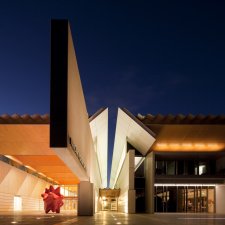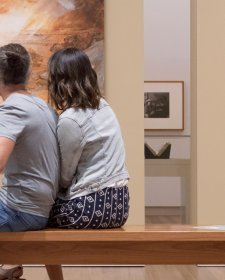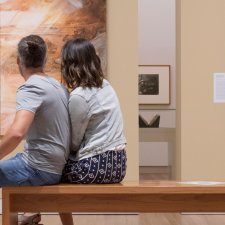- About us
- Support the Gallery
- Venue hire
- Publications
- Research library
- Organisation chart
- Employment
- Contact us
- Make a booking
- Onsite programs
- Online programs
- School visit information
- Learning resources
- Little Darlings
- Professional learning
Born in Rome, Prince Charles Edward Stuart (1720–1788) – also known as ‘Bonnie Prince Charlie’ and the ‘Young Pretender’ – was the grandson of James II, who had been deposed from the British throne in 1688, largely because of his Catholicism. The Stuart royal family lived in exile in Europe and attempted to assert their claims to the British throne. Portraiture played an important role by serving as a rallying point for their supporters in Britain and elsewhere.
In this flamboyant portrait, painted in Rome by the French artist Louis Gabriel Blanchet, Prince Charles is shown aged seventeen wearing royal regalia and armour as a projection of his family’s ambitions. In 1745, seeking to reclaim the British throne, Charles landed in Scotland and led a failed uprising at the Battle of Culloden. He fled to France, disguised as a maidservant and assisted by a loyal supporter, Flora Macdonald. He died in exile in 1788.
National Portrait Gallery, London
Purchased, 1982
© National Portrait Gallery, London



Visit us, learn with us, support us or work with us! Here’s a range of information about planning your visit, our history and more!



We depend on your support to keep creating our programs, exhibitions, publications and building the amazing portrait collection!



Information on location, accessibility and amenities.